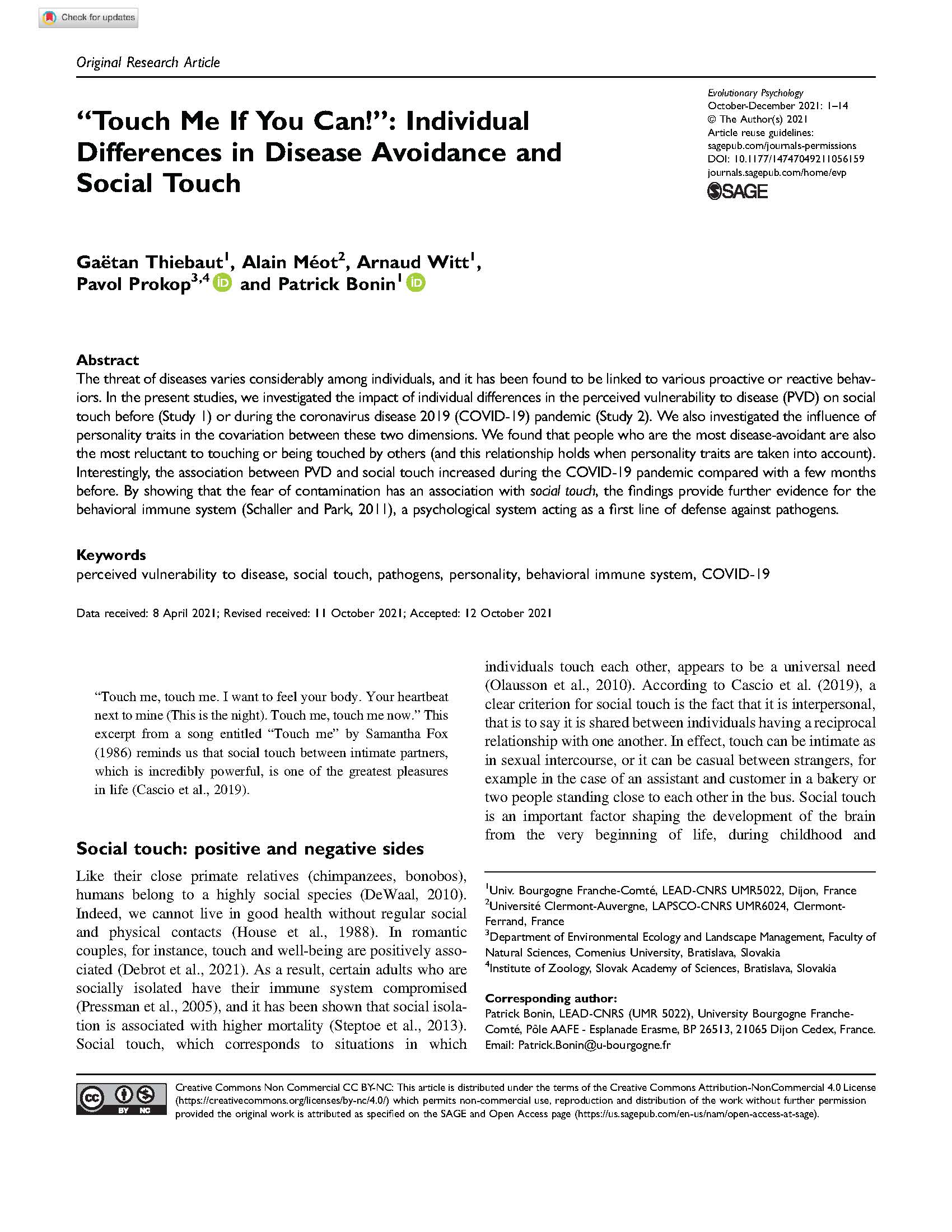The threat of diseases varies considerably among individuals and it has been found to be linked to various proactive or reactive behaviors. In the present studies, we investigated the impact of individual differences in the perceived vulnerability to disease (PVD) on social touch before (Study 1) or during the COVID-19 pandemic (Study 2). We also investigated the influence of personality traits in the covariation between these two dimensions. We found that people who are the most disease-avoidant are also the most reluctant to touching or being touched by others (and this relationship holds when personality traits are taken into account). Interestingly, the association between PVD and social touch increased during the COVID-19 pandemic compared to a few months before. By showing that the fear of contamination has an impact on social touch behavior, the findings provide further evidence for the behavioral immune system (Schaller & Park, 2011), a psychological system acting as a first line of defense against pathogens.
“Touch me if you can!”: Individual differences in disease avoidance and social touch
